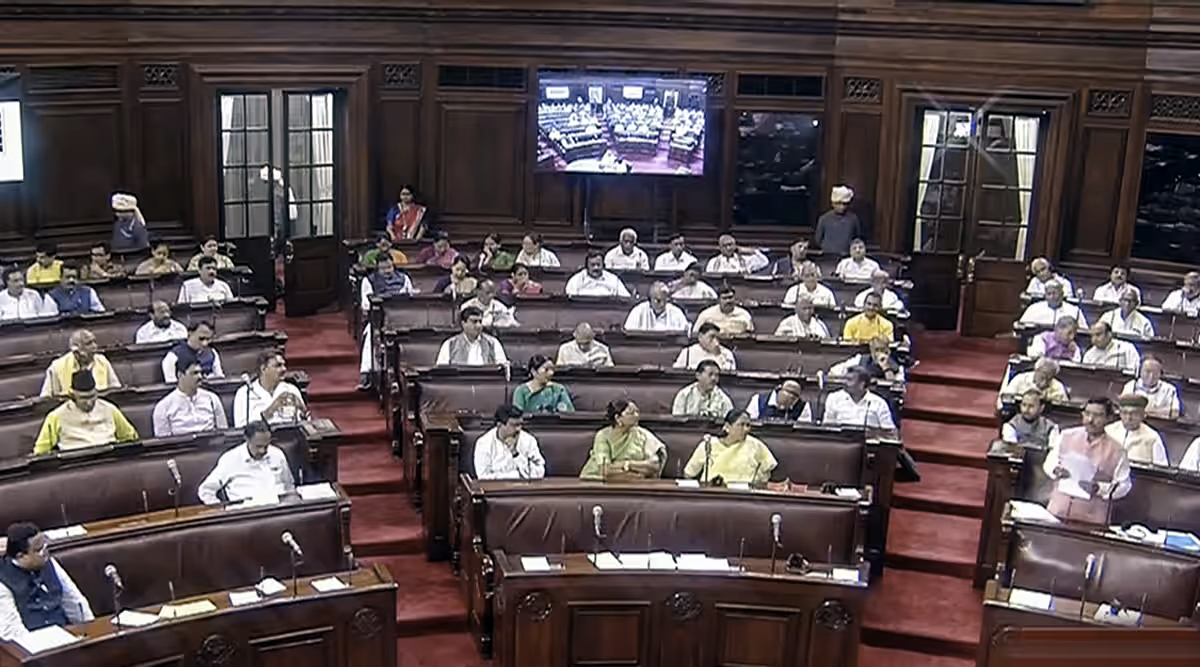During the recently concluded Monsoon session, the Lok Sabha operated for only 43 percent of its scheduled time, while the Rajya Sabha operated for 55 percent. Despite the limited functioning time, a substantial legislative workload was achieved, with the passage of 23 bills. The Government of the National Capital Territory of Delhi (Amendment) Bill, The Digital Personal Data Protection Bill, The Forest (Conservation) Amendment Bill and The Mines and Minerals (Development and Regulation) Amendment Bill are among those cleared by both houses. Approximately 56 percent of the introduced bills received passage in both houses, with an average turnaround time of eight days from introduction to passage.
The Parliament stands as a sanctum of democracy, entrusted with the collective responsibility of steering the nation forward. Essential legislation must be enacted, always considering the nation’s security, development and progress. This forum provides an opportunity to scrutinise biannual developments within and beyond the country’s borders. The Government can showcase accomplishments, while the opposition can hold the ruling party accountable for prevailing issues. The essence of Parliament lies in its collective functioning, devoid of individualistic tendencies and personal conflicts.
Regrettably, recent times have witnessed a pattern of obstructing parliamentary proceedings, even when matters could be resolved through discussions and consensus. This obstructive approach undermines the potential for effective resolution. Both the opposition and the ruling party should provide space for each other, as this balance is essential for the smooth functioning of the Parliament. Unfortunately, a lack of willingness to collaborate has deviated from the standard course of conduct. The responsibility rests on both the ruling and opposition factions to restore the Parliament’s orderly operation. People anticipate constructive dialogues concerning the nation’s current state, as these discussions directly impact them. Yet, in recent sessions, this expected engagement has been lacking. Parliament must regain its reputation as a space for productive deliberations, reflecting the broader interests of the nation.
The recent parliamentary sessions witnessed an intense focus on key matters such as the No-Confidence Motion and the Government of National Capital Territory of Delhi (Amendment) Bill, which garnered significant attention through extensive discussions. Concurrently, certain bills were swiftly passed within mere minutes. Notably, the Rajya Sabha managed to deliberate on and pass 10 bills over a span of just three days. Despite encountering repeated disruptions, the Government demonstrated its ability to navigate through these challenges and successfully secure the passage of several critical bills. Amidst the obstacles and interruptions, the Government’s accomplishment in passing pivotal bills underscores its determination and strategic manoeuvring. These legislative achievements hold significance as they contribute to shaping the country’s trajectory and addressing pressing concerns.
A comprehensive overview of the various bills presented and subsequently passed underscores the significance of legislative affairs. The ruling party bears the responsibility of introducing amendments that bolster the nation’s security, eliminate obstacles to its development and concurrently establish forward-looking laws that protect the welfare of the populace. The evolving nature of the world demands that the country remain in step with these rapid changes, as progress hinges on this synchronisation. The legislative session witnessed the enactment of crucial laws across diverse domains. The ruling party, driven by its mandate, successfully navigated bills concerning defence, biodiversity, forests, educational institutions, cinema, science, the environment, and social matters. It remains evident that legislative activity serves as the backbone of a progressive nation. The present dynamics of the world necessitate proactive governance that anticipates future challenges and opportunities.
Amidst the chaos of walkouts and disruptions in the Parliamentary Proceedings, several crucial bills have unfortunately been sidelined. It’s essential for both the ruling party and the opposition to recognise the significance of the impending conclusion of the parliamentary term. The next winter session will serve as a vital window to address pending bills and underscore the commitment to effective governance. Additionally, will be an opportunity for opposition parties to engage constructively in the parliamentary process, ensuring that public opinion is both captured and effectively represented.
Trending Now
E-Paper


